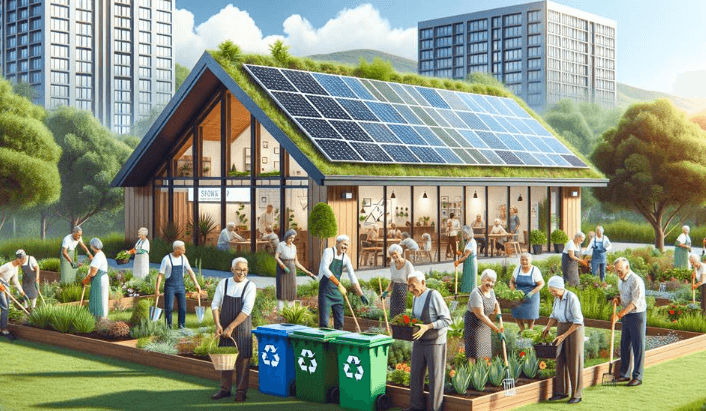Eco-Friendly Practices in Aged Care Homes

The integration of eco-friendly practices in aged care homes represents a significant opportunity to enhance both environmental sustainability and the quality of life for residents. Sustainable building designs, energy efficiency initiatives, organic gardening programs, and effective waste reduction strategies are just a few examples of how these facilities can create healthier living environments. As we explore the multifaceted benefits of these practices, it becomes evident that they not only reduce ecological footprints but also foster a vibrant community spirit. What implications do these initiatives have for the future of aged care, and how can they be effectively implemented across the sector?
Sustainable Building Designs
Implementing sustainable building designs in aged care homes is essential for promoting environmental responsibility while enhancing the quality of life for residents.
Utilizing green materials not only reduces the ecological footprint but also fosters a healthier living environment.
Incorporating natural lighting maximizes energy efficiency and creates a more inviting atmosphere, ultimately supporting the well-being and independence of residents in these essential facilities.
Energy Efficiency Initiatives
Building on the foundation of sustainable architecture, energy efficiency initiatives play a vital role in enhancing the operational sustainability of aged care homes.
Implementing solar panel installations significantly reduces dependence on traditional energy sources, while energy audit programs identify areas for improvement, ensuring optimal energy usage.
These measures not only lower costs but also promote a greener, healthier environment for residents and staff alike.
Organic Gardening Programs
Organic gardening programs have emerged as a transformative approach within aged care homes, fostering not only environmental sustainability but also enhancing the quality of life for residents.
By incorporating herb cultivation and therapeutic gardening, these programs encourage physical activity and social interaction, while providing fresh produce.
Such initiatives promote mental well-being, offering residents a sense of purpose and connection to nature.
Waste Reduction Strategies
Aged care homes are increasingly recognizing the importance of waste reduction strategies as part of their commitment to sustainability.
Implementing composting systems allows facilities to manage organic waste effectively, while robust recycling programs promote responsible waste disposal.
These initiatives not only minimize landfill contributions but also foster a culture of environmental consciousness among residents and staff, enhancing the overall quality of care.
Conclusion
In conclusion, eco-friendly practices in aged care homes serve as a nurturing garden where sustainability and well-being flourish together. Through sustainable building designs, energy efficiency initiatives, organic gardening programs, and waste reduction strategies, these homes cultivate healthier environments that enhance residents’ quality of life. By fostering a community committed to environmental stewardship, aged care facilities not only reduce their ecological footprint but also inspire a harmonious relationship with nature, benefiting both residents and the planet.





